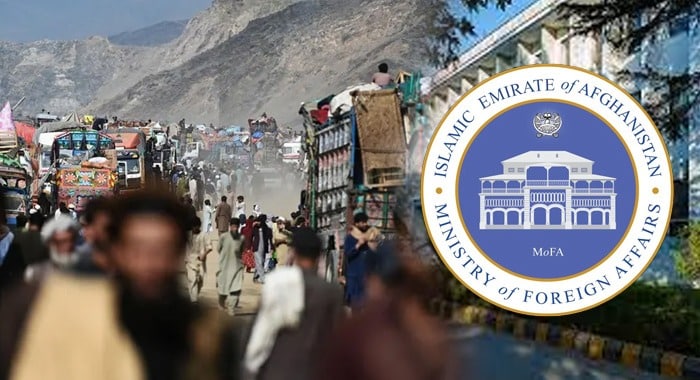Just months after an Afghan diplomat praised Pakistan for hosting refugees and declared Afghanistan safe for their return, Taliban officials are now warning of a deepening humanitarian crisis sparked by mass deportations.
On June 25, over 30,000 Afghans were deported from Iran in a single day, flooding the Islam Qala border crossing in Herat province and overwhelming local resources. The sudden influx prompted the Taliban to deploy emergency response teams and appeal for support, even as confusion and disorganisation plagued relief efforts.
This sharp contrast comes after Hafiz Mohibullah Shakir, the Afghan Consul General in Peshawar, said in April that conditions in Afghanistan were “conducive” for repatriation. At a conference, he thanked Pakistan for hosting Afghan refugees for over four decades and expressed his government’s readiness to receive returnees.
But recent events tell a different story.
According to Taliban officials in Herat, hundreds of buses arrived at the border on Wednesday, bringing thousands of Afghan nationals expelled from Iran. Taliban director of information and culture in Herat, Ahmadullah Muttaqi, said aid is being provided, but many migrants report inadequate food, water, and shelter. One returnee, Mohammad Rafi, described the situation as “severely disorganised,” saying he and his family waited for hours without assistance.
On Thursday, Herat governor Noor Ahmad Islamjar visited the border and ordered immediate measures to prevent a humanitarian disaster. His office later confirmed that emergency aid distribution and processing systems would be accelerated, though the reality on the ground remained chaotic.
The United Nations has raised alarms over the situation, warning that Afghanistan’s fragile infrastructure cannot absorb mass returns. “Every returnee deserves safety and dignity,” said Indrika Ratwatte, Deputy Special Representative of the UN Secretary-General for Afghanistan. “But without urgent support, we risk seeing families slide deeper into poverty and despair.”
The warnings come as Pakistan, too, has restarted a crackdown on undocumented Afghan refugees. Although the official repatriation deadline ended on June 30, deportations began in earnest in early April, shortly after the Afghan consul’s optimistic remarks in Peshawar. Since then, reports have emerged of Afghans being forcibly returned through the Spin Boldak-Chaman border, only to re-enter Pakistan days later due to economic hardship or fear of mistreatment.
Human rights observers have also raised concerns over how the Taliban is handling deportees, citing cases of arbitrary detentions and lack of reintegration support for vulnerable groups, a far cry from the reassurances given just months ago.
Further complicating matters, Iran’s recent 12-day military conflict with Israel has driven not only Afghans but also some Iranians into Afghanistan, intensifying pressure on the already strained Herat province. Local authorities say the flow is ongoing and could worsen without regional cooperation.
As thousands more continue to be expelled from Iran and Pakistan alike, questions are mounting over the Taliban’s capacity and consistency in handling the refugee situation. The contrast between earlier diplomatic assurances and the current ground reality is now at the centre of growing criticism, both domestically and internationally.





